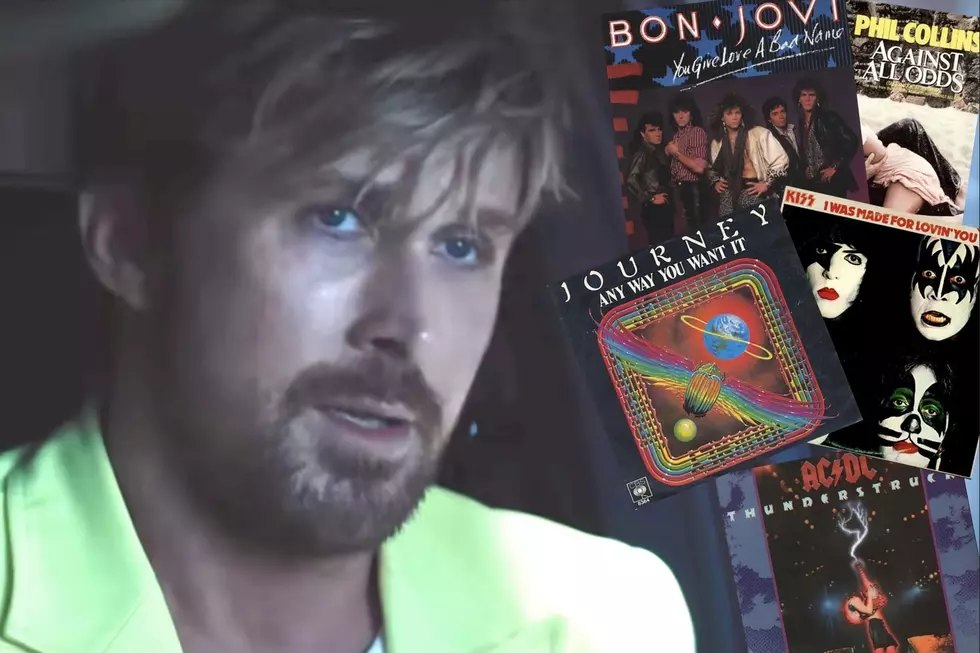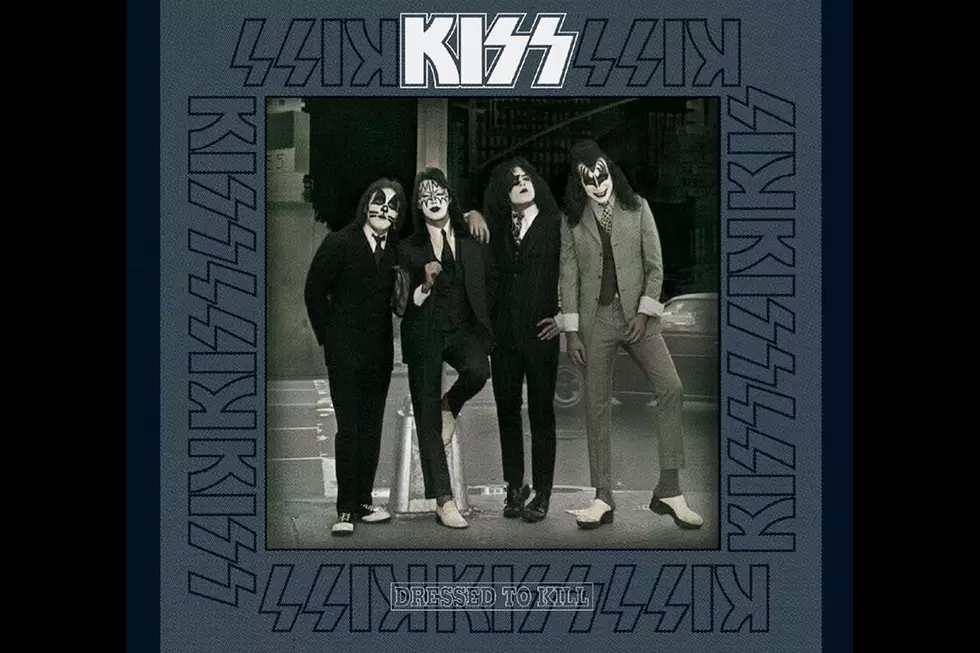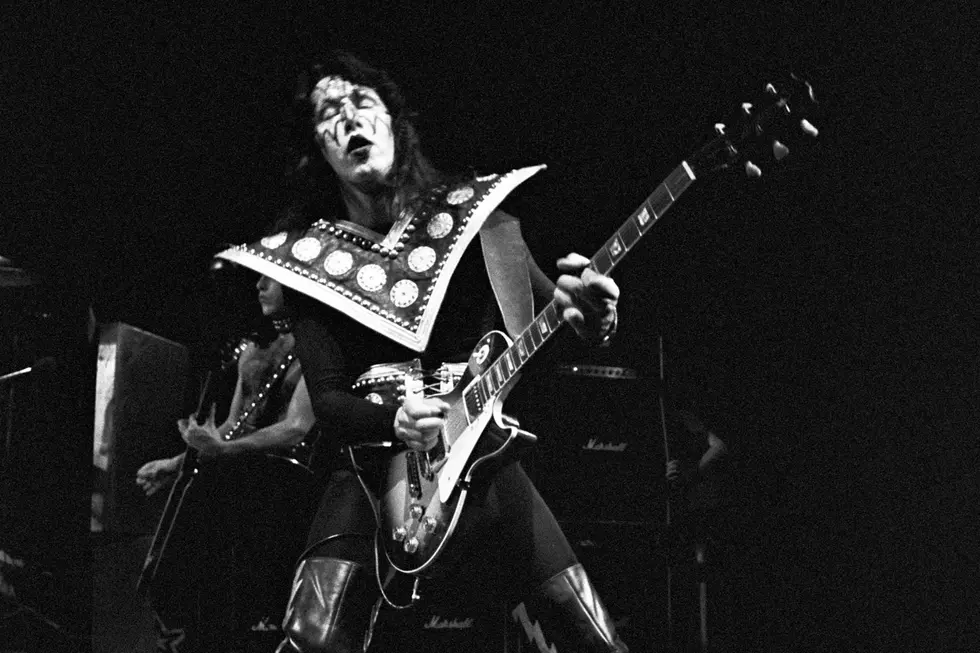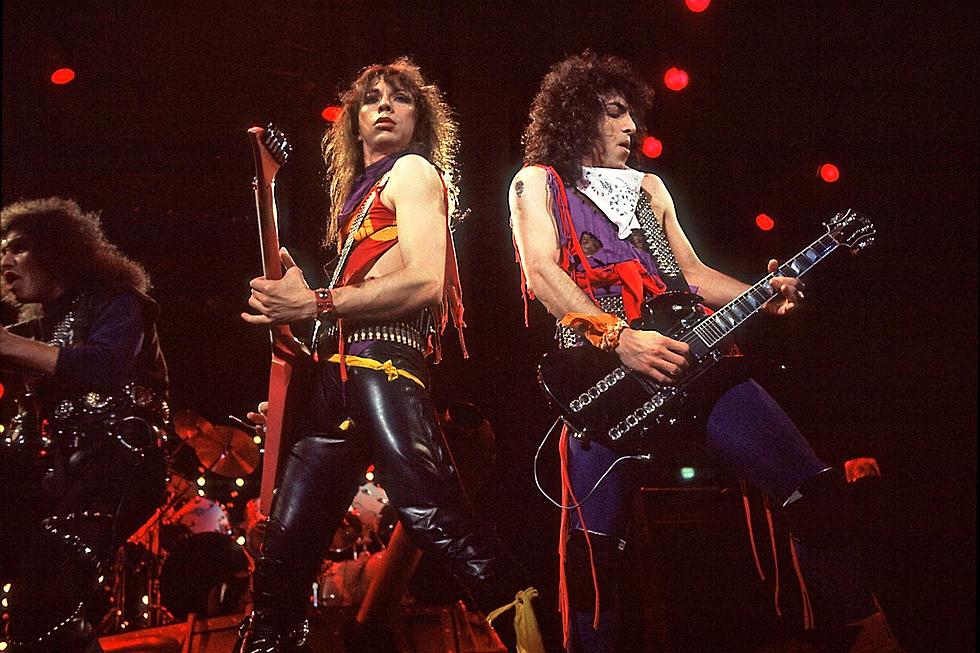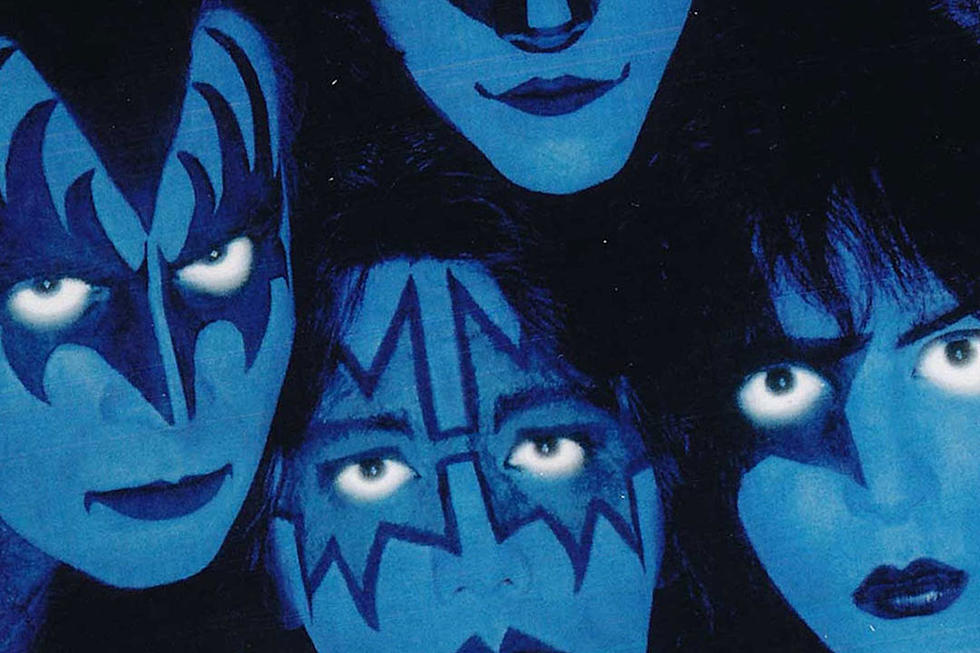
How Kiss Revived Their Career on ‘Creatures of the Night’
Kiss finally broke out of a career-threatening creative tailspin in October 1982 with their 10th studio album, Creatures of the Night.
Barely five years before, the makeup-wearing group were on top of the world, selling out stadiums and releasing hit album after hit album.
However, internal tensions between the group's two camps (basically, Paul Stanley and Gene Simmons vs. Peter Criss and Ace Frehley) and a desire to reach an even larger, mainstream and family-friendly audience combined to almost completely torpedo the group.
Kiss' previous three albums – 1979's overly thin, disco and pop-influenced Dynasty, 1980's even more pop-heavy Unmasked (which bombed, but holds up better than you'd think) and 1981's infamous medieval concept album Music From 'The Elder' – failed to connect the band with that desired "next level" success, and in fact instead very quickly turned off the loyal fans they'd worked so hard to win over in the '70s.
By all accounts, Criss checked out during the making of Dynasty, although he remained on the credits and cover art of that and Unmasked. Similarly, Frehley was mostly M.I.A. from the Elder project and completely absent for the recording of Creatures of the Night, but the group kept him on the cover so that replacement drummer Eric Carr was the only was the only new face fans saw.
When they entered the studio, Kiss were determined to make their new album what they had originally intended Music From 'The Elder' to be – a loud, brash return to their hard-rock roots. This time out they not only stuck to that plan, they may have overshot it a bit, venturing deeper into heavy metal territory than they ever had before.
"I thought [Creatures] was great," Stanley says in Kiss: Behind the Mask. "It really was us reclaiming our purpose. We'd become complacent, wealthy and deluded ... that album had a purpose."
Listen to Kiss' 'Creatures of the Night'
Carr, undoubtedly confused about joining a straight-ahead rock band only to have his first project be the ornate Music From the Elder, was thrilled to show what he could do in a more traditional setting. As anyone who's heard the hard-hitting album can tell you, producer Michael James Jackson made sure the drums were the first thing anybody heard.
"Gene and I went on a search-and-destroy mission all over Los Angeles to find a great drum room," he recalled. "I used vintage microphones on the drums, and the room itself was also well covered with microphones. The end result was excellent, and further enhanced by the fine work Bob Clearmountain did in the mix at the Power Station."
With Ace gone, the lead guitar work was done by committee, with Robben Ford, Steve Farris (of Mr. Mister!), and Bob (not Bruce) Kulick all contributing solos. However the lion's share of the lead work, as well as some impressive songwriting, was turned in by the man who would ultimately -- if only temporarily -- replace Frehley, Vinnie Vincent.
Somehow in all this transition everything clicked into place, to the point where Simmons to this day seems to promise every upcoming new Kiss studio album is a blend of Creatures and 1976's Destroyer. The album's big hit "I Love it Loud" is still played at nearly every Kiss concert to this day, and for much of the band's non-makeup years the title track and the bluesy Stanley showcase "I Still Love You" were staples of their live shows.
Other highlights include Stanley's wonderfully over-the-top "Keep Me Comin'," along with the riff-heavy "War Machine" and "Killer." But the album's true heart lies in a pair of Simmons-fronted tracks, which hint at the band's determination to overcome the often self-created chaos that had enveloped them in recent years.
First up is "Saint and Sinner," a lurching and surprisingly sophisticated rocker which finds the Demon kissing off his former bandmate Frehley in barely-masked terms – "Without you it's aces high." "Rock and Roll Hell" treads in similar territory as Simmons ponders losing his place in the rock world ("This time the pressure's really on") with songwriting help from Bryan Adams. Both of these songs are packed with dramatic moments and depth without ever seeming gimmicky; it makes you wonder if this was the sonic and lyrical territory Kiss were aiming for with The Elder.
Even though Creatures of the Night marked a strong return to form and new levels of songwriting, arrangement and performance skill, the record failed to reconnect the band with their understandably distrusting audience. In later years Creatures would get the recognition it deserved, but in order to get themselves back in the national spotlight Kiss would have to make a drastic and previously unthinkable change.
Kiss Lineup Changes: A Complete Guide
Kiss Released One of Rock’s Most Hated Albums
More From Ultimate Classic Rock
